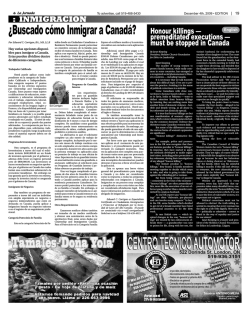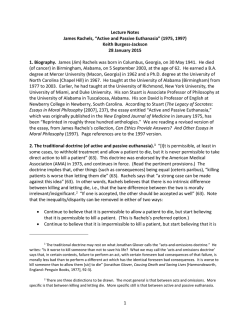
Honour Crimes in India: Lessons and Cautions
One Day UGC National Seminar on “Honour Crimes in India: Lessons and Cautions” on 31.01.15 Jointly organized by Bharathidasan University, Department of Women’s Studies, Tiruchirappalli India has been recognized as the largest democratic nation and standing as a fast growing developing economy at the global front. Development trade offs with environment and gender are the basic constraints which push India back to the lowest Human Development Index. Human capital formation in terms of education and skill development are not at par with developed nations. Migration and brain drain are the price paid for due to lopsided development strategies. More than economic reasons, social factors and constraints prevent attaining animproved quality of life. Gender based violence is one indicator of social backwardness where the traditional social structures based on caste and religion play a vital and dominant role in deciding the gender roles and social group divisions, occupations, customs, social norms, etc. Caste and Gender intersect on increasing the crimes against women and girls particularly so with respect to Honor Crimes. The so-called ‘honour’-based violence (HBV) occurs in communities where the concepts of honour and shame are fundamentally bound up with the expected behaviours of families and individuals, particularly those of women. There are 5000 honour killings internationally occur per year in which 1000 each honour killings occur in India and Pakistan and 12 honour killings per year in UK. NGOs put this number to four times higher so 20,000 honor crimes every year. It cannot be called as Honour but Dishonour or Horror crimes. . Honour killing in the Indian Context has increasingly paid its toll on historically disadvantaged section of population namely Dalit and Women. State failed to protect or not able intervene effectively in curtailing such sensitive issues for the reasons that it may end up with communal conflicts and unrest in the society. The traditional social norms strictly enforced the marital norms and, marriages were happening as per such norms. Honour killing is being observed for the deviations from the socially defined norms such as inter-caste marriages, hetero sexual acts outside marriage, homosexual acts etc., which are considered as inappropriate in the caste hierarchical contexts. With considerable social change and progressive developments, still such rules are being followed. Breaking these rules can bring shame to the couples’ families, who can be ostracized from their communities as a result. It is an unwritten law that for any deviations from set norms would always penalize the women, where the onus of upholding a family’s morality mostly falls on women A woman marrying without consent of parents has been viewed as polluting her caste and to uphold the caste honour one would turn to murder to restore their honor in their community. A recent Law Commission sponsored study revealed that over a period of four years out of the 560 couples who were threatened and sought state protection, 121 individuals were killed. No one from the state has been punished for failing to protect these individuals. It is the responsibility of the State to protect the victims of Caste honour from falling into tragedy of murder. Every responsible citizen should question such atrocities and the unconstitutional crimes. Every social institution be it family, caste, educational institutions, caste, religion, law, media, state, market, etc have a say over such dishonor on human being. The following issues need to be discussed in the one day seminar on Honor Crimes in India. Where is the ‘ Honour” in Killing and Murder? Why does Honor Crimes Occur? What are the Feminist Implications? What leads the families to commit such crimes? Is a life of a person inferior to or cheaper than upholding family honor? Does such practice prevalent only in India or other parts of the world also? What are the misconceptions regarding honour killing and what are the solutions to stop this crime from spreading? These are the questions to be debated and resolved. Rigidity of the Caste System and refusal to change the attitude of the parents, families, and above all failure of formal governance by the state. Further it is often politically, religiously motivated, but it will just be shown as it if such issues had happened among individuals. There is a misconception that honor crimes occurs in rural areas, but it is equally happening in urban. What strategies to adopt to stop this violence and protect the innocent couples to lead a peaceful life who made their own choice for their marriage. How to educate the families to respect individual rights to make their choice in their marriages rather than brutal killing? What type of law, state governance is needed? Now to enforce the law? What kind of attitude be changed to honour the life not the killing? What is the role of individuals, social institutions, civil society organizations, State, Media, NGOs, Corporate, Political parties, Judiciary, Caste and Religious Institutions? What is honoured with honour killing? Those who wish to present papers may submit on the following themes which is not exhaustive. Themes: Honour Crimes at the National and International contexts Forms and type of honour killings in India and Tamil Nadu Intersection of honour based crimes and Gender based Violence The case studies of reported and unreported honour crimes in India Factors, reasons, and politics behind honour crimes Gender implications of honour crimes and way forward. Intersection of patriarchy, capitalism and gender on Honour Killing. Abstract Last Date 27.01.15. The full paper Last Date 30.01.15. There is no Registration Fee. Kindly arrange Travel on your on. Accommodation will be arranged on request in the University Guest House on payment directly to the University. Tiruchirapalli is well connected with road, rail and air. Bharathidasan University KhajamalaiCampus is close to Airport, Railway Station and Bus Stand.visit at www.bdu.ac.in. Those who wish to present papers may send their soft copies of the abstracts: The Director and Head, Department of Women’s Studies, Bharathidasan University, Khajamalai Campus, Tiruchirapalli620 023. [email protected]/[email protected] 0431- 2332627 +919443923839
© Copyright 2026




